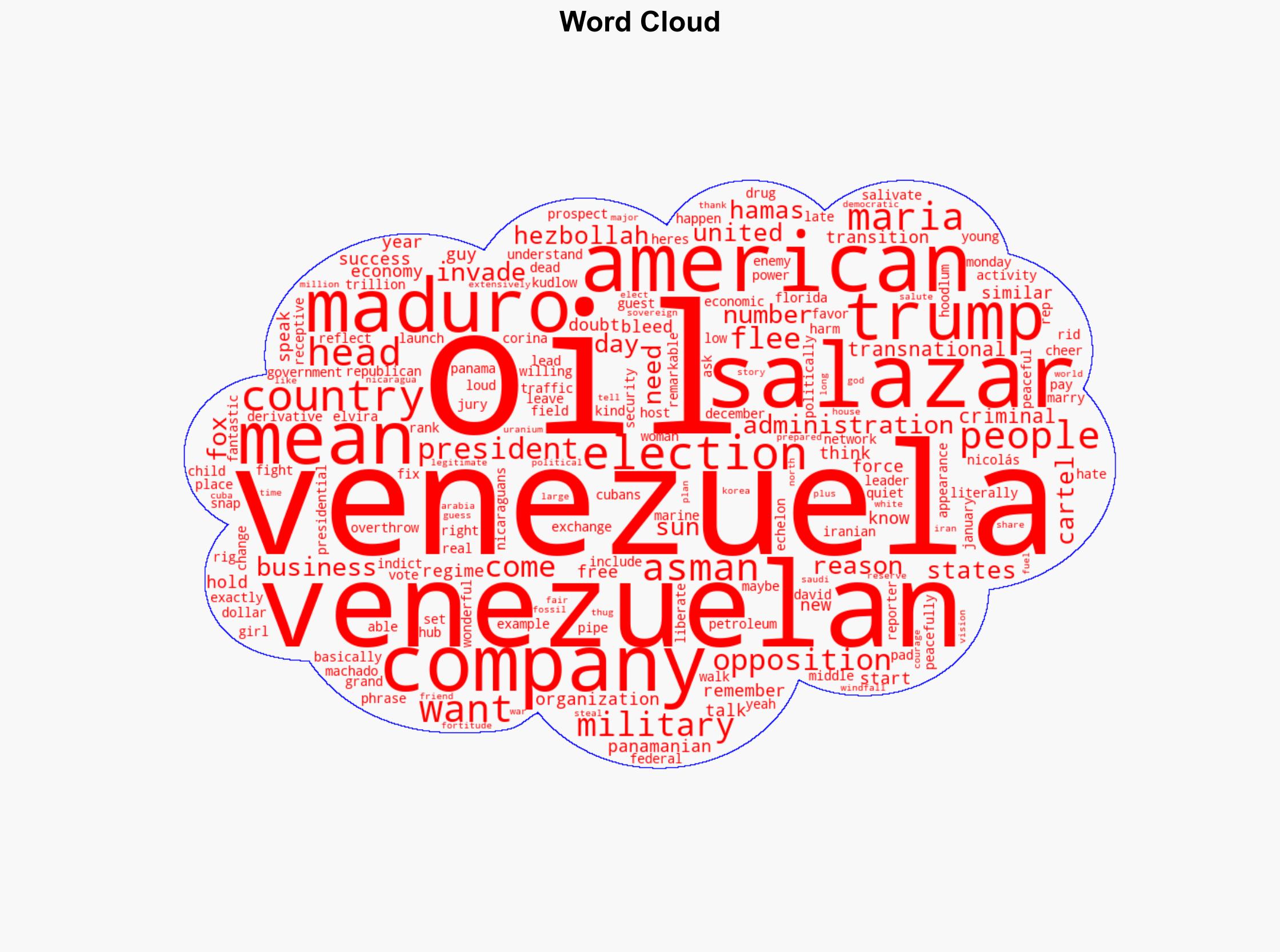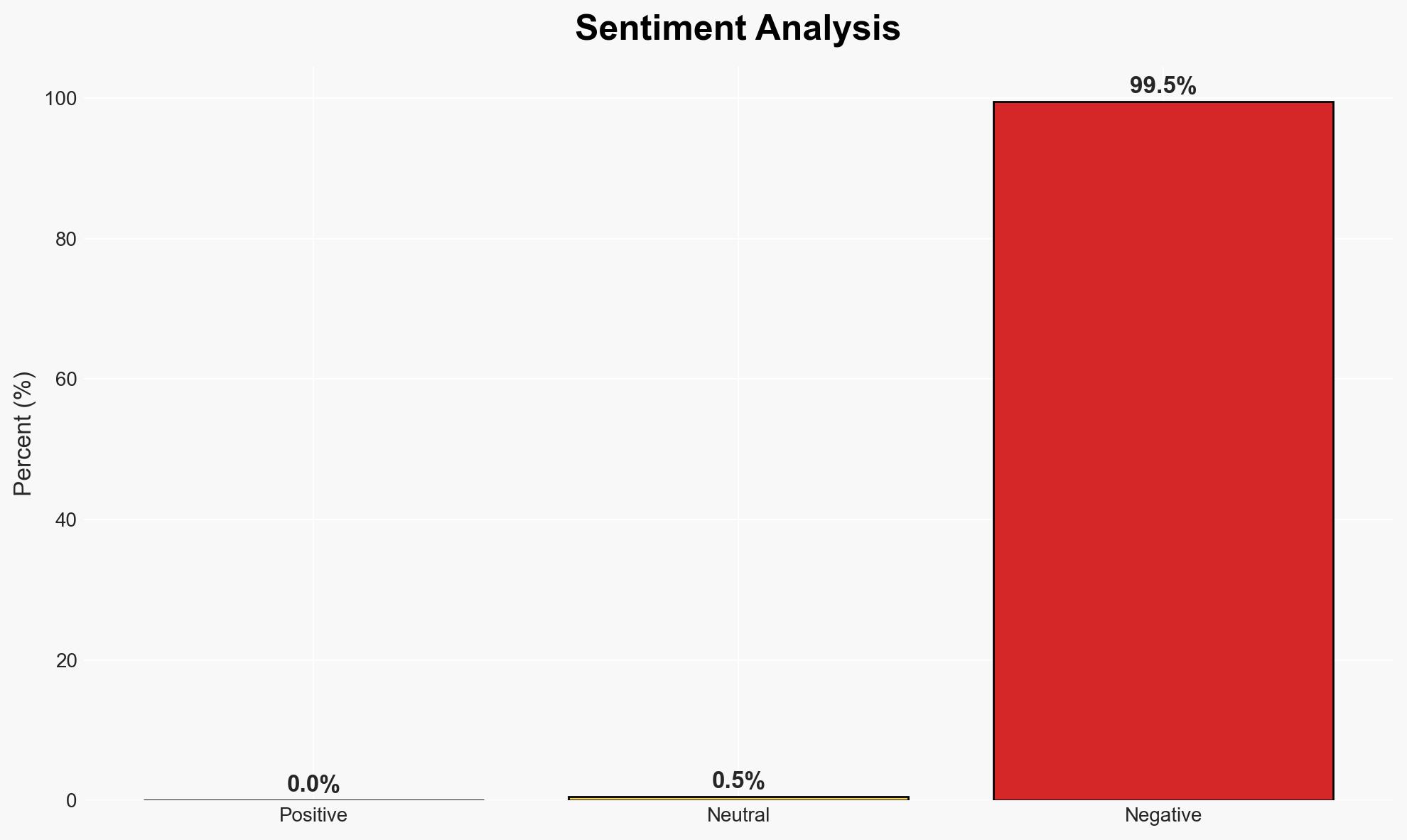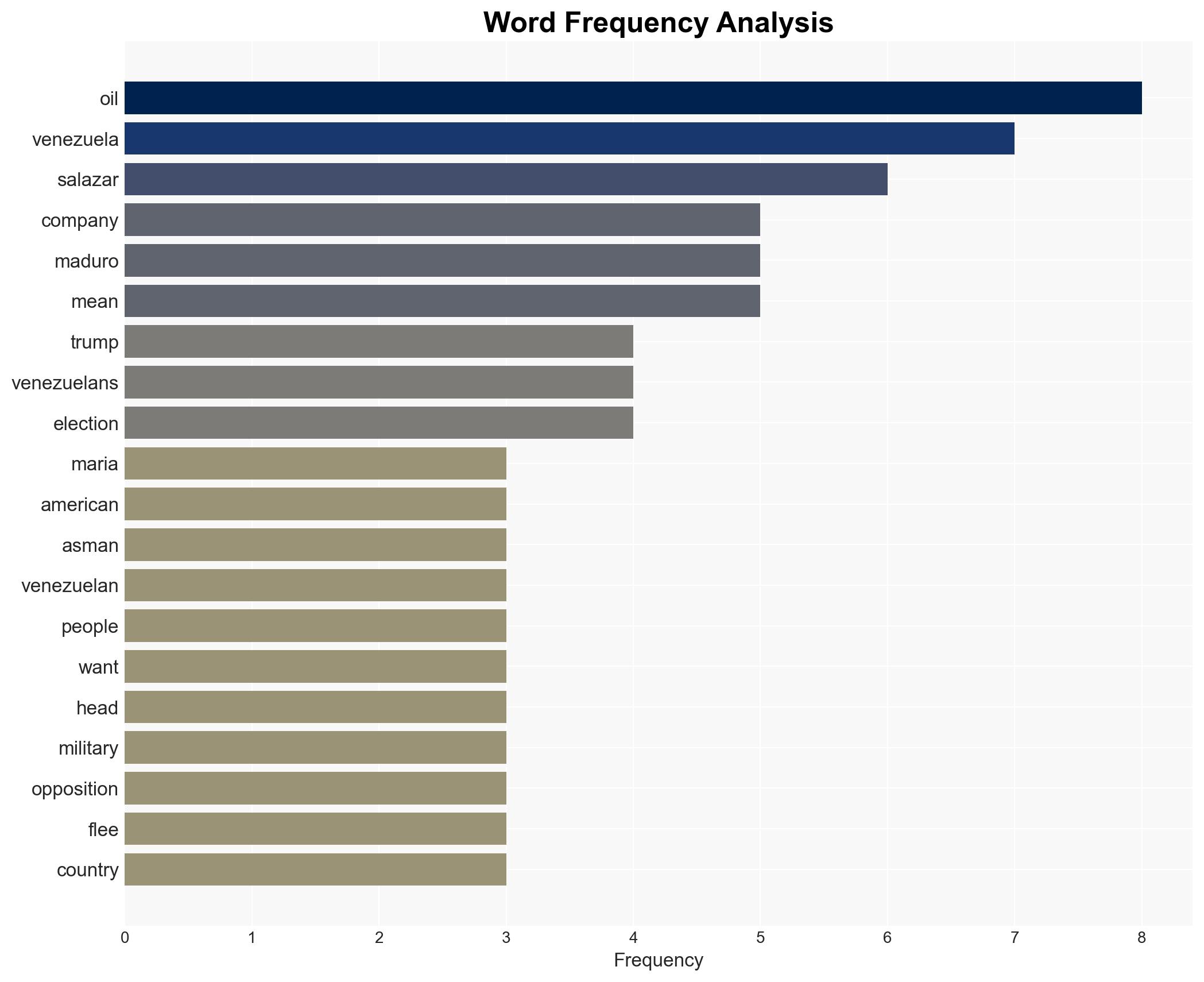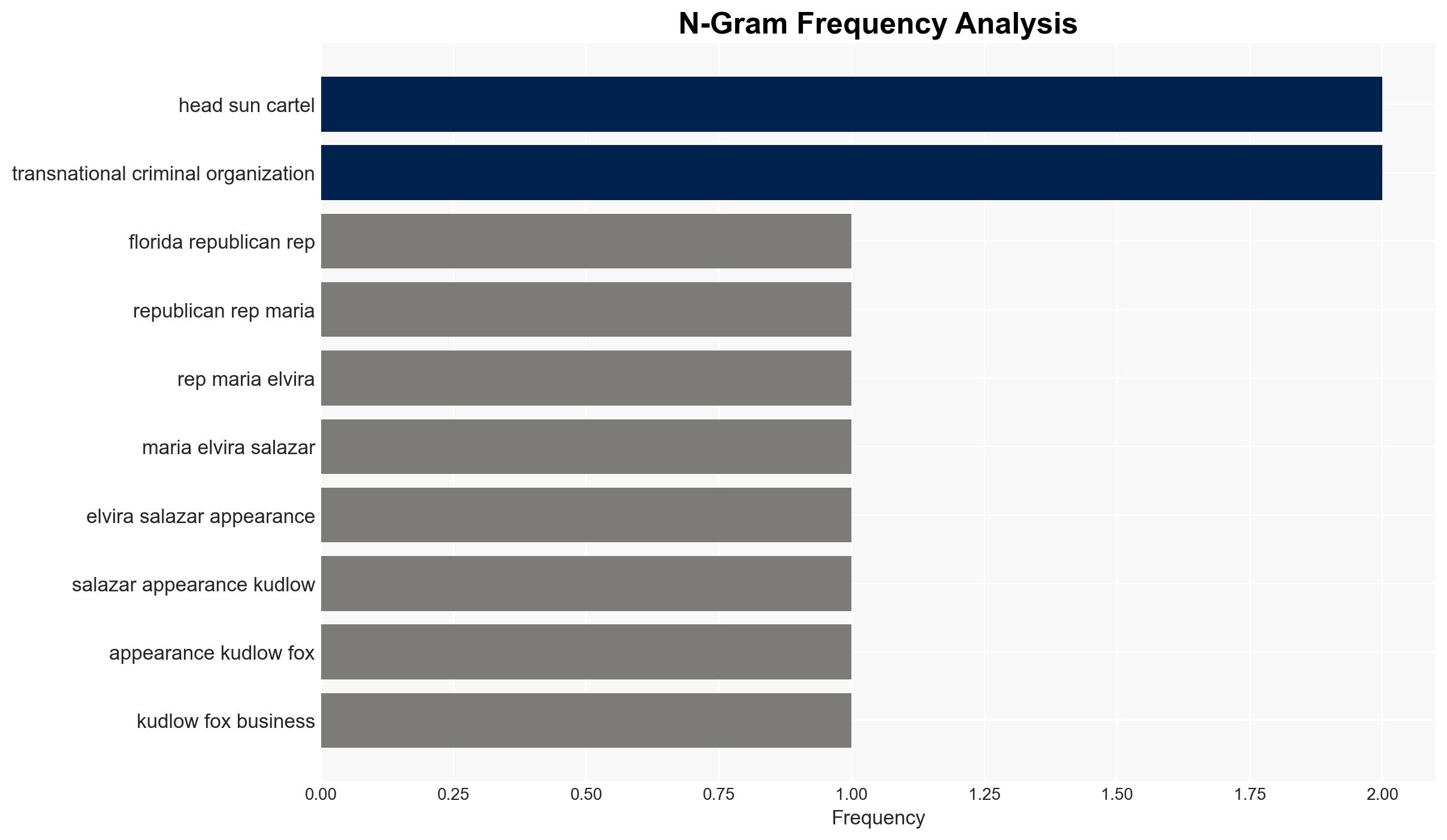Florida GOP Rep Reveals Strategic Interests Behind Potential U.S. Intervention in Venezuela
Published on: 2025-11-26
AI-powered OSINT brief from verified open sources. Automated NLP signal extraction with human verification. See our Methodology and Why WorldWideWatchers.
Intelligence Report: GOP Rep Lets The Venezuela Invasion Cat Out Of The Bag
1. BLUF (Bottom Line Up Front)
The statement by Rep. Maria Elvira Salazar suggests a potential U.S. interest in intervening in Venezuela, primarily motivated by economic gains from oil resources. This raises concerns about U.S. foreign policy intentions and the implications for regional stability. The most likely hypothesis is that the U.S. is considering a strategic intervention in Venezuela to counter perceived threats and secure economic interests. Overall confidence in this judgment is moderate, given the lack of direct evidence of imminent action.
2. Competing Hypotheses
- Hypothesis A: The U.S. is planning a military intervention in Venezuela to secure oil resources and counter regional threats. This is supported by Salazar’s comments on the economic benefits and security threats posed by the current Venezuelan regime. However, there is no concrete evidence of imminent military action, creating uncertainty.
- Hypothesis B: Salazar’s statements are political rhetoric aimed at garnering domestic support and pressuring the Venezuelan government without actual plans for military intervention. This is supported by the lack of official policy announcements and the potential political risks of military engagement.
- Assessment: Hypothesis B is currently better supported due to the absence of corroborating evidence for military preparations. Indicators such as official policy shifts or military mobilization could shift this judgment.
3. Key Assumptions and Red Flags
- Assumptions: The U.S. government prioritizes economic interests in foreign policy; Venezuela’s current regime is perceived as a security threat; U.S. intervention would primarily aim to stabilize the region.
- Information Gaps: Lack of direct evidence of military planning or diplomatic efforts towards intervention; unclear U.S. strategic objectives in Venezuela.
- Bias & Deception Risks: Potential bias in Salazar’s statements reflecting personal or political agendas; risk of misinterpretation of rhetoric as policy.
4. Implications and Strategic Risks
This development could lead to increased tensions in U.S.-Venezuela relations and affect regional stability. The rhetoric may provoke defensive measures by Venezuela and its allies, potentially escalating into broader geopolitical conflicts.
- Political / Geopolitical: Potential for increased U.S.-Latin America tensions; risk of alienating allies if perceived as imperialistic.
- Security / Counter-Terrorism: Heightened risk of retaliatory actions by Venezuelan allies or proxy groups.
- Cyber / Information Space: Possible increase in disinformation campaigns or cyber operations targeting U.S. interests.
- Economic / Social: Potential disruption of oil markets; impact on Venezuelan diaspora and regional migration patterns.
5. Recommendations and Outlook
- Immediate Actions (0–30 days): Monitor official U.S. policy statements and military movements; engage in diplomatic dialogue with regional partners.
- Medium-Term Posture (1–12 months): Develop contingency plans for potential regional instability; strengthen alliances with Latin American countries.
- Scenario Outlook:
- Best: Diplomatic resolution and stabilization of Venezuela without military intervention.
- Worst: Military conflict leading to regional destabilization and economic disruption.
- Most-Likely: Continued political pressure without direct military involvement, maintaining status quo tensions.
6. Key Individuals and Entities
- Rep. Maria Elvira Salazar
- Nicolás Maduro
- Trump Administration (historical context)
- Venezuelan Opposition (e.g., Maria Corina Machado)
7. Thematic Tags
Structured Analytic Techniques Applied
- Cognitive Bias Stress Test: Expose and correct potential biases in assessments through red-teaming and structured challenge.
- Bayesian Scenario Modeling: Use probabilistic forecasting for conflict trajectories or escalation likelihood.
- Network Influence Mapping: Map influence relationships to assess actor impact.
Explore more:
National Security Threats Briefs ·
Daily Summary ·
Support us





